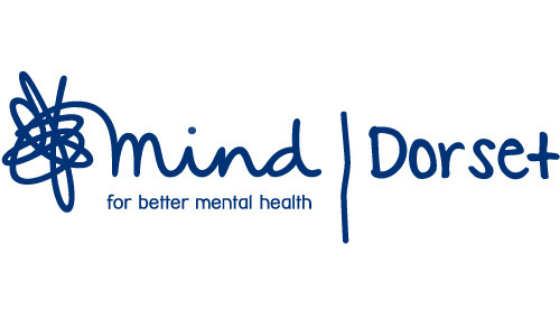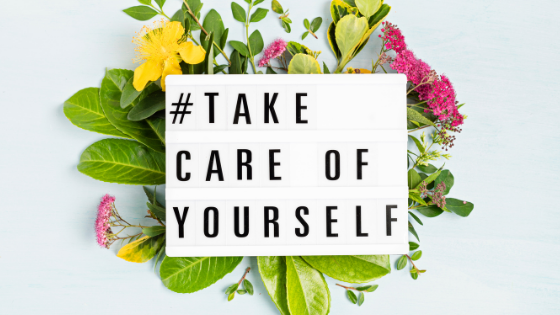Winter can be a challenging time for many at the best of times, but throw the Covid-19 pandemic into the mix and this year is set to be even tougher. Here, we hand over to Dee Swinton from Dorset Mind for a special guest blog, as they share their top tips for keeping your mental health in top shape this winter.
It’s thought the winter blues, or seasonal affective disorder (SAD) affects around 2 million people in the UK and more than 12 million people across northern Europe. It can affect people of any age, including children. Staying mentally well is just as important as keeping physically well throughout the winter months.
Here are our top tips to help you keep mentally healthy throughout the winter months…
Daylight and Vitamin D
The lack of daylight hours and drop in temperature means we spend less time outside getting much needed vitamin D, which is important to keep your immune system healthy and your mood lifted. Here are some ideas of how to combat this:
- Try and get outside as much as possible.
- Take a walk at lunch instead of eating inside.
- Set your alarm an hour early and take a walk/run/cycle before work.
- Make the most of the weekends and get outside! Remember, there’s no such thing as bad weather, just the wrong clothing! Wrap up warm and dry and push yourself to go on that walk. Guaranteed it will be worth it!
If you find that your mood is really suffering as result of the shorter, darker, days, you may be one of those many people who experience SAD (Seasonal Affective Disorder). One relatively inexpensive self-treatment for SAD is the use of a ‘light box.’
You could also try incorporating extra Vitamin D rich foods into your diet, such as oily fish, red meat, egg yolks or mushrooms – or perhaps consider taking a vitamin supplement.
Follow The 5 ways to Wellbeing
Get active
Regular physical activity is known to lower rates of depression and anxiety across all age groups. Exercise is also essential for slowing age-related cognitive decline and for promoting wellbeing.
But it doesn’t need to be particularly intense for you to feel good – slower-paced activities, such as walking or yoga, can have the benefit of encouraging social interactions as well providing a level of exercise.
Today, why not get active? Here are a few ideas for you to try:
- Take the stairs, not the lift
- Go for a walk at lunchtime
- Walk to work or school – perhaps with a friend or colleague – so you can ‘connect’ as well
- Get off the bus one stop earlier than usual and walk the final part of your journey
- Organise a sporting activity
- Have a kick-about in a local park
- Do some ‘easy exercise’, like stretching, before you leave your house
Connect
There is strong evidence that indicates that feeling close to, and valued by other people, is a fundamental human need and one that contributes to us functioning well in the world.
Social relationships are critical for our wellbeing and for acting as a buffer against mental ill health for people of all ages.
Although on one hand, in lockdown, it has been hard to connect in person to our friends and loved ones, on another, it has perhaps increased our ability to stay connected. Many of us have relied on video calling or social media to stay in touch and are now fully adept with different means of communication. Meeting your friend ‘online’ for a workout doesn’t seem such a strange idea now in 2020. So, if you struggle to fit in being sociable around work/family/Covid restrictions, take advantage of what technology can do to connect you to the world!
Take Notice
Studies have shown that being aware of what is taking place in the present, directly enhances your wellbeing. Savouring ‘the moment’ can help to reaffirm your life priorities. Mindfulness is a good way to take notice of what’s going on around you.
How to practice being mindful:
- Notice the everyday things around you and take pleasure in doing so. Take time to enjoy a coffee, try knitting or painting – anything you can fully immerse yourself in.
- Designate regular time for when you become more aware of nature and your surroundings.
- Clear your mind during this time by being aware of your thoughts and decide to ‘park’ any that may crop up when you stop what you are doing and enjoy your moment of mindfulness.
- Why not try an app to guide your meditation, such as Headspace or Calm. Headspace has version you can download for free, and Calm has a free trial period.
Learn
Anecdotal evidence suggests that the opportunity to engage in work or educational activities particularly helps to lift people out of depression.
Now has never been a better time to learn something new. You can find many online courses or podcasts for free or cheap with a little research. Make the most of the time that lockdown and tier restrictions bring and research courses that can help you with professional development, or just simply for fun.
Give
Research into actions for promoting happiness has shown that committing an act of kindness once a week over a six-week period is associated with an increase in wellbeing.
Take part in fundraising for a charity such as Dorset Mind’s Move Your Mind challenge, volunteer for them, or do something special for someone. Giving your time to someone who truly appreciates it will not only give you a sense of purpose, but will help that person feel happier too.
Ideas for giving:
- Commit to regular volunteer work for a local charity.
- Check in on an elderly neighbour.
- Call a friend or relative who lives by themselves.
- Spend 5 minutes making conversation with an elderly person in the supermarket. It might be the only conversation they have that day.
- Take a dinner round to your stressed-out friend who juggles children/work/life.
- Buy an extra item and drop it into the food bank collection whilst shopping.
Self-Care and help
If you’re struggling to keep on top of your mental health, and notice your mood dipping, don’t be afraid to tell someone. Start by letting a trusted friend, family member or your GP know. Voicing your concerns will help release any pressure that has been building.
Find out about the support Dorset Mind can offer you locally on their Help and Support pages. There is also plenty of self-care resources on the charity’s website.
Should you, or anyone you know experience a mental health crisis, follow Dorset Mind’s 5 step crisis plan for those who aren’t sure where to turn or know what help is available.
The Samaritans get more calls at this time of year than at any other time. If you need emotional support, they are available 24/7 on 116 123, which is a freephone number.
It is essential that we get the message out to everyone that there IS help available and things CAN change for the better. It is critical that people know how to find the help they need and to not be afraid to ask for it.
About Dorset Mind
Mental health problems can affect anyone, they do not discriminate. Around one in four people will suffer from some form of diagnosable mental health problem during their lifetime. The most common forms of mental health problems are anxiety, stress, and depression, but there are many others including bipolar, schizophrenia, eating disorders and obsessive compulsive disorder.
Dorset Mind local charity educates, challenges mental health stigma and inequality, and encourages recovery by empowering individuals to develop resilience.
Their 1-2-1 and group support includes active monitoring and coaching, counselling, mentoring, peer-support groups and an accredited befriending service. These help people regain social skills and develop resilience.
The charity also delivers educational wellbeing programmes for schools and workplaces and provides volunteer opportunities across all areas of the organisation.
For more details, see dorsetmind.uk
Dorset Mind – Address: 8 Stratfield Saye, 20-22 Wellington Road, Bournemouth. BH8 8JN.
Tel: 01202 315329 xt. 3. Email: marketing@dorsetmind.uk. Web: www.dorsetmind.uk
Twitter: DorsetMind. Facebook: DorsetMindOfficial Instagram: Dorset Mind.
Dr Andrew Mayers FRSA – Patron
Tel: 07749 201980. Email: amayers@bournemouth.ac.uk. Web: http://www.andrewmayers.info
Twitter: DrAndyMayers. Facebook: Andy Mayers.








